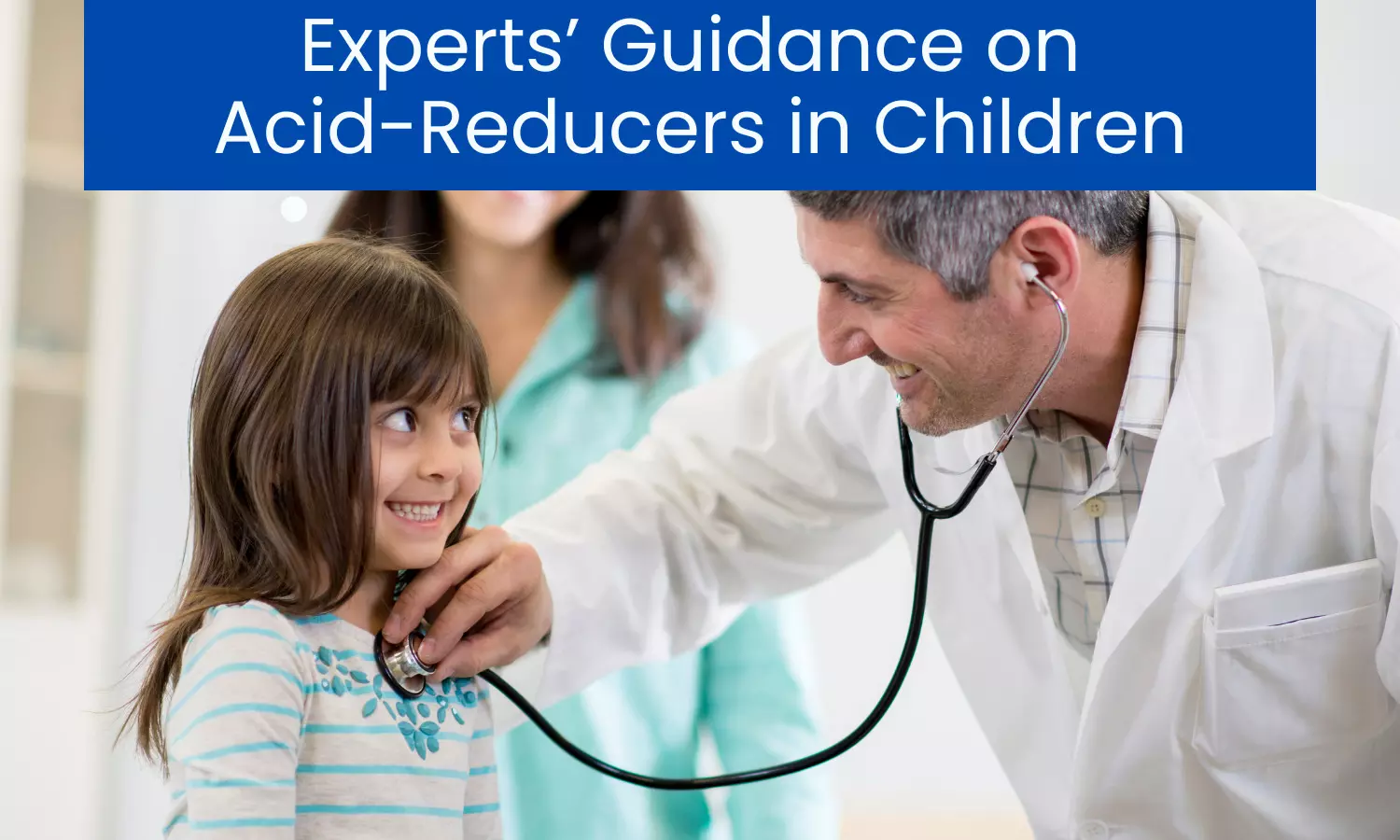Evidence-Based Recommendation by Indian Pediatric Experts on the Use of Acid-Reducing Medications in Children
- byDoctor News Daily Team
- 20 September, 2025
- 0 Comments
- 0 Mins

A recent Indian evidence-based review highlighted recommendations from a multidisciplinary team of paediatricians on the appropriate use of acid-reducing medications (ARMs) in children. The review was published in the July 2025 issue of the journalCureus. Gastric acid-reducing medications (ARMs), including H2 blockers and PPIs, are essential for treating various gastrointestinal conditions in pediatric care.However, concerns over safety and widespread off-label use persist, especially in younger children, due to lack of clear, practice-based prescribing guidelines. The Evidence-based review from Multidisciplinary team of Pediatricians on the use of gastric Acid-reducing medications in Children: Indian Perspectives (EMPACIP) study was undertaken to address these gaps by offering clear, evidence-based recommendations to guide appropriate ARM use and support informed prescribing in pediatric care. Twenty-four pediatric specialists, including neonatologists, general pediatricians, pediatric gastroenterologists, pediatric nephrologists, a pediatric hepatologist, a pediatric pulmonologist, and a pediatric intensivist from across India, conducted a structured literature review and collaboratively evaluated ARM use and current practices. They defined and assessed the severity of drug-induced dyspepsia using the ‘5-point Likert Scale Dyspepsia Severity Scale' via the Mentimeter platform.Among the various drug classes, NSAIDs and their combinations were identified as the most common cause of drug-induced dyspepsia, followed by Antibiotics like Amoxicillin/Clavulanic Acid, Azithromycin, Cefuroxime, Steroids like Prednisolone, and Nutritional supplements like Iron and Zinc supplements. The following are the recommendations provided: These findings aim to guide primary care practitioners in adopting evidence-based ARM practices, serving as a resource for current and future paediatricians to improve patient care. Reference:Pai UA, Ravishankar AV, Bharadia L, H R S, Wadhwa A, Prajapati B, C J, Mittal G, Belsare H, Anand K, Narayanan K, Furniturewala K, Sanklecha M, Suresh Kumar MV, Bhattacharya P, N P, Jog P, Wazir S, Soans ST, Manikanti SS, Roy S, Bhattacharyya S, Bansal U, Goswami V. Evidence-Based Review by a Multidisciplinary Team of Pediatricians on the Use of Gastric Acid-Reducing Medications in Children: Indian Perspectives. Cureus. 2025 May 7;17(5):e83653. doi: 10.7759/cureus.83653. PMID: 40486365; PMCID: PMC12143190.
Disclaimer: This website is designed for healthcare professionals and serves solely for informational purposes.
The content provided should not be interpreted as medical advice, diagnosis, treatment recommendations, prescriptions, or endorsements of specific medical practices. It is not a replacement for professional medical consultation or the expertise of a licensed healthcare provider.
Given the ever-evolving nature of medical science, we strive to keep our information accurate and up to date. However, we do not guarantee the completeness or accuracy of the content.
If you come across any inconsistencies, please reach out to us at
admin@doctornewsdaily.com.
We do not support or endorse medical opinions, treatments, or recommendations that contradict the advice of qualified healthcare professionals.
By using this website, you agree to our
Terms of Use,
Privacy Policy, and
Advertisement Policy.
For further details, please review our
Full Disclaimer.
Recent News
Merck Keytruda wins European Commission nod for lo...
- 30 October, 2025
UP NEET 2025 round 3 allotment results postponed
- 30 October, 2025
Achin Gupta to succeed Umang Vohra as Cipla MD, GC...
- 30 October, 2025
Mumbai shocker: KEM Hospital doctor stabbed by col...
- 30 October, 2025
Daily Newsletter
Get all the top stories from Blogs to keep track.


0 Comments
Post a comment
No comments yet. Be the first to comment!